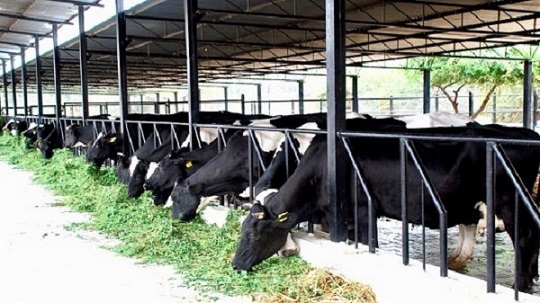
UNIVERSITY PARK, Pa.– Food safety specialists in Pennsylvania State University’s College of Agricultural Sciences will collaborate with scientists at Addis Ababa University and Kansas State University (Manhattan, KS) in Ethiopia on a project to improve the safety and quality of Ethiopian dairy foods.
A nearly $1 million grant from the Bill and Melinda Gates Foundation will support the team in providing food safety training to build the capacity of Ethiopian academic, government and industry institutions for monitoring the prevalence of foodborne microbiological hazards in the Ethiopian dairy food supply chain.
The safety of dairy products with respect to foodborne disease is a great concern around the world, especially in developing countries where production and processing of milk and other dairy products take place under unhygienic conditions and poor production practices, according to Assistant Professor of Food Science Jasna Kovac, project leader for Penn State.
She noted that the consumption of raw milk is common in Ethiopia, creating public health concerns because it is a common reservoir or a vehicle for transmission of foodborne pathogens such as Campylobacter, Listeria monocytogenes and Salmonella.
“Improvements in raw milk handling are becoming a necessity in developing countries like Ethiopia to enhance quality and safety of milk and milk products in the country,” Kovac said.
She added that previous studies have shown that the most effective improvements include implementation of good hygienic practices for livestock and milk handlers, cleanliness of milk-collection and storage containers, control of microbial growth during transportation and in processing facilities, and the pasteurization of raw milk and dairy products.
Penn State food safety specialists will teach pathogen-detection methods to visiting Ethiopian collaborators, and Kovac will follow up that training by visiting Addis Ababa University to verify correct implementation of recommended methods that will be used in a yearlong, enhanced monitoring of foodborne pathogens in the Ethiopian dairy food supply.
She also will present similar training to laboratory staff from Ethiopian universities and government agencies to build their capacity for robust foodborne pathogen surveillance.
“We will have undergraduate students involved in preparation and delivery of the trainings at Penn State, which will provide them with a unique opportunity to interact with Ethiopian researchers and learn about food systems and food safety in developing countries,” Kovac said.
Other faculty members in Penn State’s Department of Food Science involved in the project are Catharine Cutter, professor of food science and Penn State Extension assistant director for food safety and quality programs, and Kerry Kaylegian, assistant research professor and extension dairy foods specialist. They will provide advanced food-safety training, including good manufacturing practices, for dairy processors in Ethiopia.
The leader of the project, Assistant Professor Ashagrie Zewdu of Addis Ababa University, was trained in the Department of Food Science at Penn State in 2012. Penn State and Addis Ababa University are partnering on this project with Jessie Vipham, assistant professor in global food systems, in the Department of Animal Science and Industry at Kansas State University.
Source: Pennsylvania State University
